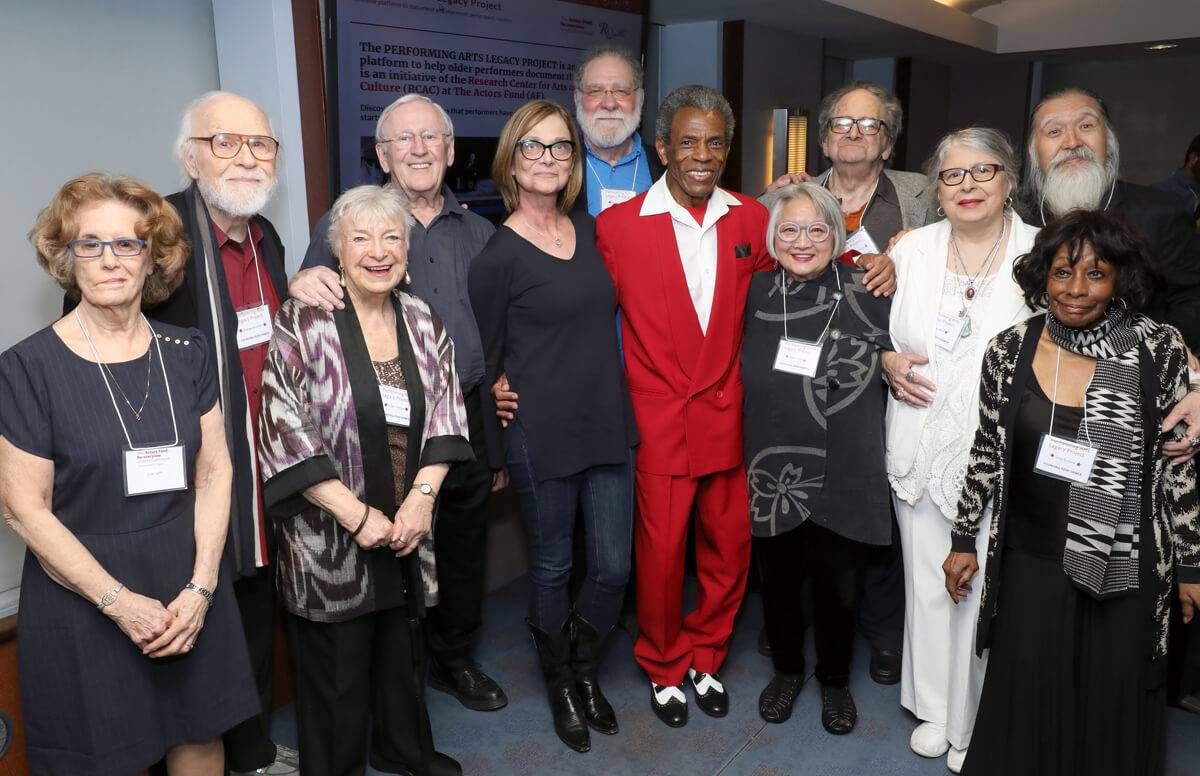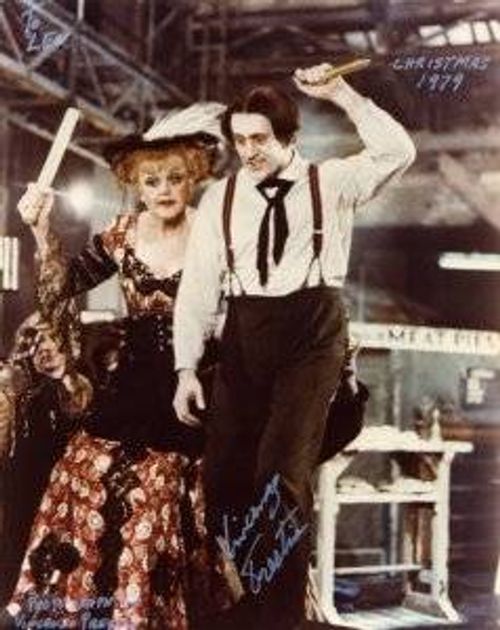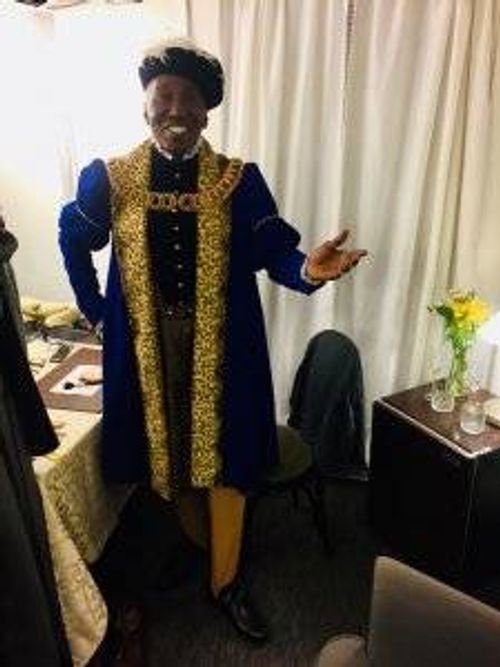Curating the Milestones of Actors' Lives
The Performing Arts Legacy Project lets actors reflect on their work
Picture this: You’re a working actor. You master tricky pratfalls and stunts, memorize reams of lines, sing, dance — and do all of this in front of a live audience eight times a week. Sounds exhilarating, yes? Maybe stressful, too. And if you’re on the road, as Bill Galarno was for a 1962 national tour of The Sound of Music, which played 100 cities in 10 months, it can be exhausting.

Even remembering that experience was exhausting, Galarno recalled. But as challenging as that period of time might have been, Galarno says it was nothing compared to trying to catalog his long legacy of credits using a computer program.
Enter his friend Jamie Baker, who patiently helped Galarno (who describes himself as “technology-mystified”) build his website on a new online platform hosted by the Actors Fund, which has its national headquarters in New York City. After four and half months of opening drawers, shuffling papers and sorting appearances according to decade, Galarno breathed a sigh of relief and can now proudly point people to a link where they can see the trajectory of his 62-year career.
Career Milestones and Anecdotes
The Performing Arts Legacy Project (PAL), a brainchild of actress Joan Jeffri, offers older performing artists a platform to document their careers. The actors are put in touch with younger volunteers who help them assemble and create the content as well as navigate the technology of building a website, which can be stress-inducing for some.
In addition to memorializing their legacies, Jeffri notes another important, if not immediately obvious, benefit. “People might assume that older actors work together because it’s an ensemble profession,” Jeffri noted. But, she says, actors can be very isolated as they get older, and PAL provides a kind of community for them.
"A lot of people think their story isn't important. But I believe every story is important. There's always some wisdom to be gained and a connection to be made."
“One of my actors said he was in three kinds of therapy when he [started] this project, but within three weeks he canceled all of his therapy appointments because he found his community again. It’s a very meaningful, respectful, safe place to be,” Jeffri said.

The original crew of 10 performers — including André De Shields (a 2019 Tony winner for his role in Hadestown) and Len Cariou (Sweeney Todd, Applause and Blueblood) — met once a week to build websites for their oral histories, timelines and curated "life reviews."
The latter are short videos of the performers reflecting on their lives and careers with the help of a filmmaker/partner. The goal is to gather 12 to 15 minutes of raw video footage using a digital camera or smart phone. The performer reminisces about career milestones or tells anecdotes, with the camera sometimes capturing close-ups of memorabilia such as photo albums or scrapbooks. Once the raw film has been shot, it is edited into a 7-to-10 minute video. De Shields provides a charming example of how this works.
‘Every Story Is Important’
Grace Connolly, a playwright who created life-review videos for four of the actors, observed: “A lot of people think their story isn’t important. But I believe every story is important. There is always some wisdom to be gained and a connection to be made.”
The trick is to pay attention. “People really enjoy talking about themselves — if someone is really listening,” said Connolly. If you are assisting people with this process, ask about turning points in their lives and highlights of their careers or the moment they realized something important about the direction of their life. Then, make eye contact with your subjects and really listen.
The PAL program is available to performers, playwrights and directors who are over 62, and applications are available on the site.
Mentoring from the Pros
Many of the curated life reviews include wisdom from a life on- and off-stage, and the veterans mentor younger people (wittingly or not) as part of the process.

Mel Johnson, Jr., who is currently appearing in the Tony-nominated Kiss Me Kate on Broadway, urges people starting out in the business to persevere. “Don’t expect to get a job within six months,” he cautions.
He also emphasizes the all-important “In-Betweens” — the jobs actors take that must be flexible enough so they can leave on a moment’s notice if they're cast in a show.
Johnson, who has had a long career on Broadway (The Rink, Lion King, Jekyll and Hyde and others) and film (Total Recall) made an important decision early on. He had a summer job at Procter & Gamble as a “burster,” feeding reams of computer data into a machine that perforated the margins. Johnson dutifully rose at 5 a.m. for the duration of this job.
“I am a responsible person, and when that was over, they wanted me to stay on. I would probably be running Procter & Gamble right now. I said 'No.' And I said, ‘This is the last time I’m doing anything like that,” said Johnson.
Instead, he vowed that any survival job would be connected to creativity.
He wound up working as a runner for the original TKTS half-price ticket booth in Times Square during the days before computerization, when humans would literally run tickets from the box office to the booth. This job kept him connected to the theater community and eventually landed him his first Broadway role in The Rink with Chita Rivera and Liza Minnelli because someone told him about the audition while he was working at the booth.
Encouragement for Young Actors
Nowadays, Johnson said, sometimes he sits in his dressing room at the Studio 54 Theater and thinks “I am in heaven.” He has worked in the theater steadily most of his career and savors the happiness this can bring an actor. But he also knows what it’s like to break in.

“The thing you’re going to be doing most is auditioning, so find a way to really enjoy that,” he advised. “If you enjoy that process, people on the other side of the table are going to see that.”
You can look at auditioning as a way of doing this work of acting, Johnson noted. “The only thing you have control over is what you do when you go into that room, so make the best of that time and enjoy it. Enjoy the auditions, enjoy the rehearsal and enjoy the performance, and leave the other junk outside.”
He also encourages young actors to enjoy life itself: traveling, creating relationships, building friendships. Early in his career, Johnson became a Big Brother and speaks fondly of his Little Brother, who now has four children of his own and remains a part of Johnson’s life.
“It’s really important to do those things in life. I’ve met some actors who are afraid to leave town because they are afraid of missing an audition,” said Johnson.
Acting as a Great Joy
Cariou also has good advice about the profession — and life. When he speaks to graduating classes at acting schools, he feels it’s important to tell people the truth. Namely, the desire to act had best be burning in your belly; because if it isn’t, you won’t last.
“Somebody’s going to reject you,” he noted. “Actors need to live with that.”
Cariou described acting as a great joy. “It’s a privilege and responsibility, plus you can do it forever if you live your life right,” he said.
But, he warned, “Keep yourself active. Keep yourself in the game. Don’t do [a role] and wait a year and do it again. Do three or four things a year. Because it’s muscle, it’s all muscle. They atrophy very quickly if you don’t use them.”

